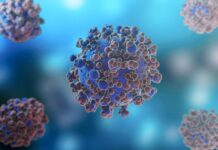A recent systematic review has shed light on the role of oxidative stress, gut health, and diet in the development and management of attention deficit hyperactivity disorder (ADHD). The review suggests that non-genetic factors, including oxidative stress and gut-brain axis interactions, significantly contribute to ADHD symptoms, alongside hereditary factors.
Researchers analyzed studies from PubMed, Google Scholar, and ScienceDirect, examining the relationship between oxidative stress, diet, gut health, and ADHD. They found that oxidative stress—caused by an imbalance between free radicals and antioxidants—plays a crucial role in ADHD development. This imbalance can lead to neuroinflammation, disrupt cellular functions, and damage proteins and DNA, exacerbating ADHD symptoms.
The review also highlighted the influence of gut health on ADHD. The gut-brain axis (GBA), a communication network between the gut and the brain, is impacted by the composition of gut microbiota. An imbalance of gut bacteria, with fewer beneficial microbes, can contribute to ADHD symptoms. Probiotics, often found in fermented foods, can help restore balance, potentially improving ADHD symptoms by modulating immune responses and producing neurotransmitters like serotonin.
Diet was also identified as a key factor. Nutrient-rich diets, particularly those high in antioxidants and anti-inflammatory compounds like polyphenols, vitamins, and minerals such as zinc, magnesium, and iron, may help reduce oxidative stress and inflammation, thereby alleviating ADHD symptoms. Foods rich in omega-3 fatty acids, such as fish oil, were also shown to improve neurotransmitter activity.
As reported by news-medical.net, the findings highlight the potential for diet and gut microbiome interventions to manage ADHD symptoms, providing new avenues for targeted treatments. The researchers suggest that future studies focus on therapies that reduce oxidative stress, which could improve the standard of care for ADHD patients and reduce the disease burden.
This review emphasizes the importance of addressing both genetic and non-genetic factors in ADHD, offering new hope for more effective, holistic approaches to treatment.
























